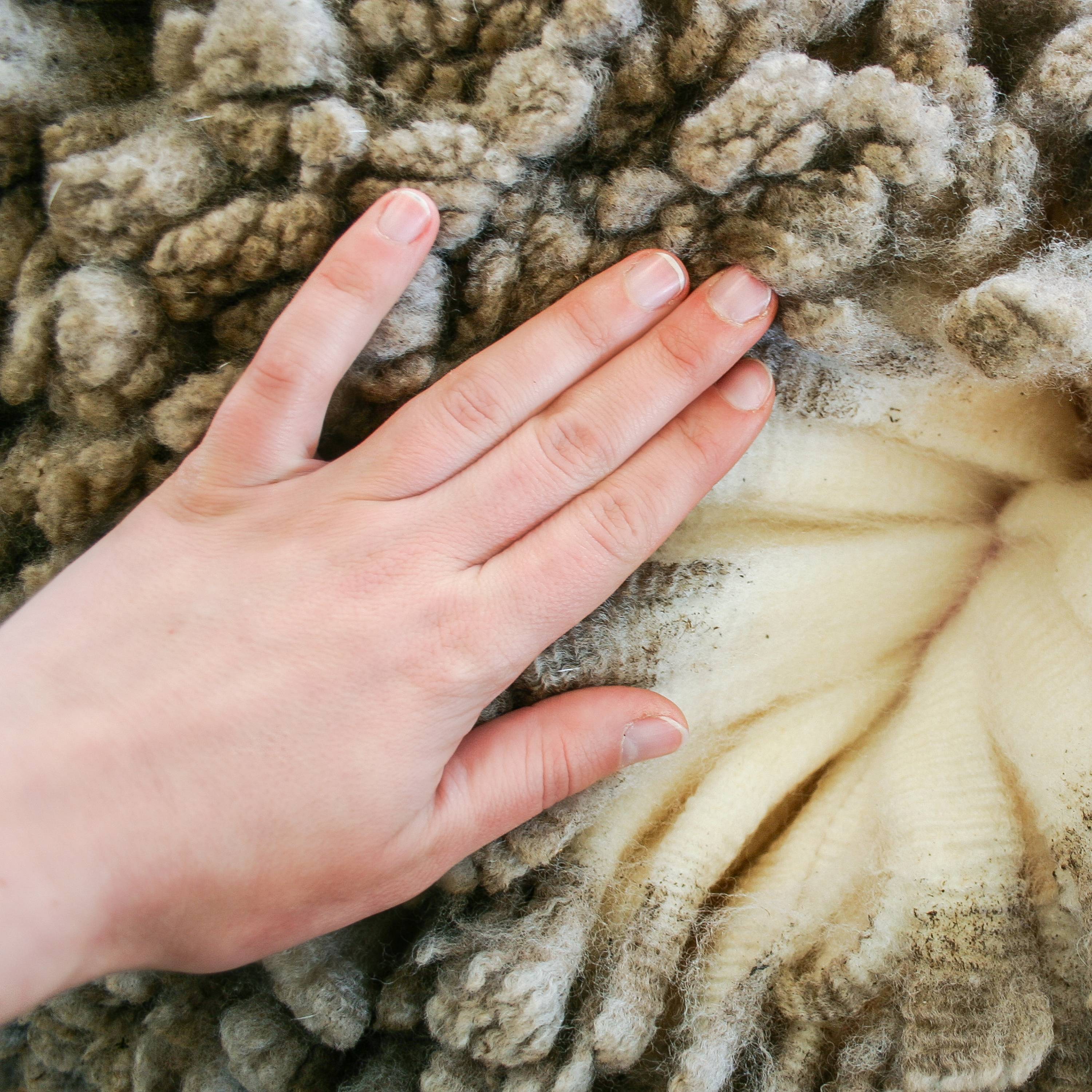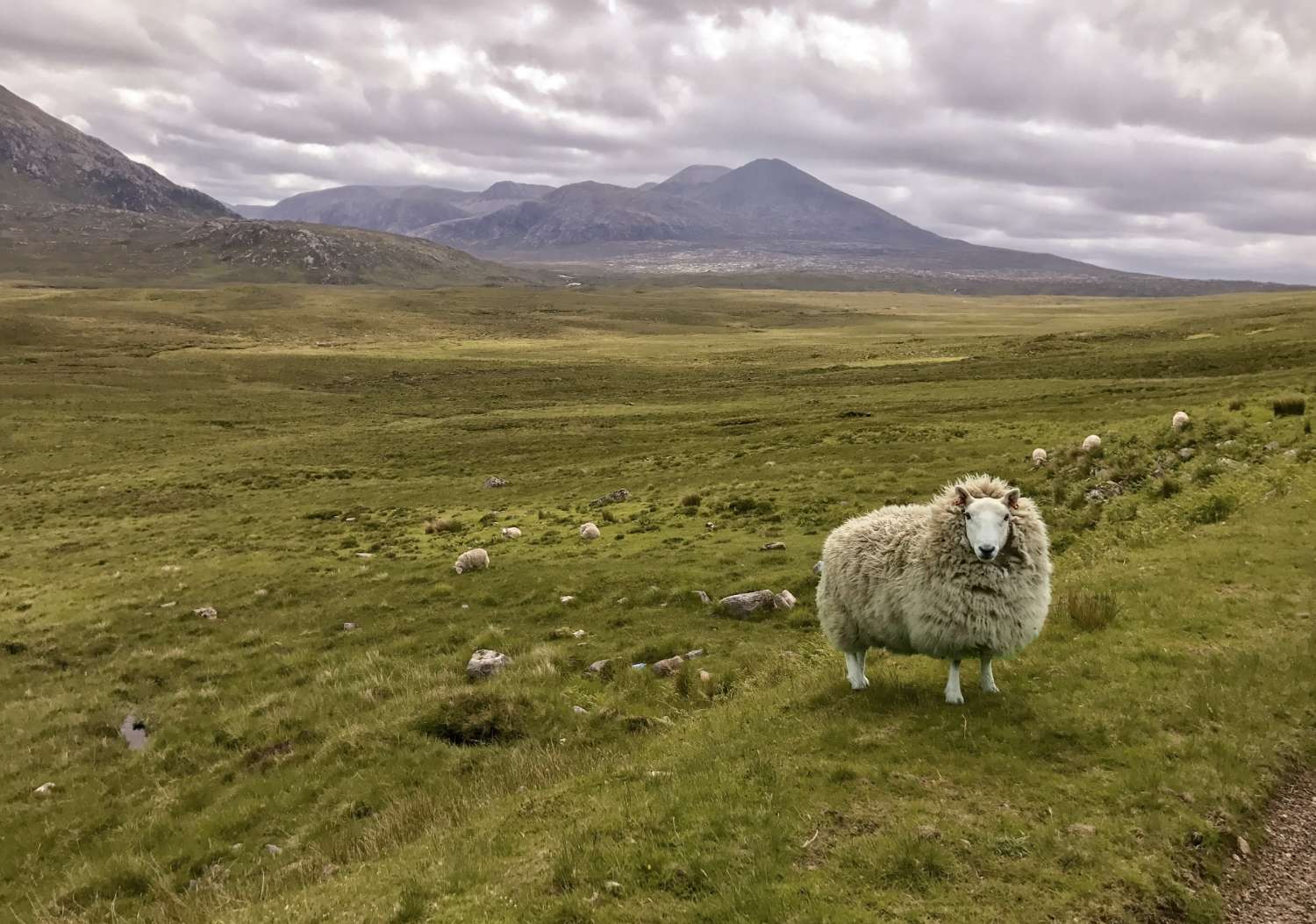
merino Wool
Rotauf Knowledge
Merino wool
Merino wool is a true miracle fiber. Its functional properties, valued by outdoor athletes—especially its high level of comfort, body temperature regulation, and odor-inhibiting properties—are based on the material's natural fibers; these are very fine, soft, highly crimped, scaled, and elastic.
THE MIRACLE FIBER
Where does Merino wool come from?
Merino wool comes from the Merino sheep, a breed known for its fine and soft wool. Originally from North Africa, the Merino sheep spread to Spain in the Middle Ages and later to Australia and New Zealand, which are now the world's largest exporters of Merino wool. Other important producers include South Africa and Argentina.
Merino wool is comfortable to wear
The special feature of Merino wool lies in its fine fibers, which are between 16.5 and 24 microns thick – significantly finer than conventional sheep's wool and even thinner than human hair. This fineness ensures that Merino wool is non-itchy and particularly comfortable to wear. The fibers are highly crimped, allowing air pockets to trap heat and provide excellent insulation against cold and heat. This structure also means there are fewer contact points between the skin and the fabric, allowing for optimal heat retention.
Ideal for summer and winter
Merino wool can absorb up to 30% of its own weight in moisture without feeling wet. This moisture is stored in the fibers and released through evaporation in warmer temperatures, creating a cooling effect – ideal for summer clothing. At the same time, Merino wool retains warmth even when wet through a natural process in which it releases heat when it absorbs moisture.
Naturally odorless
The wool also has odor-neutralizing properties: The scaly fiber surface prevents bacteria from settling, and the keratin in the fiber breaks down bacteria. This means that Merino textiles need to be washed less often. Thanks to a mechanical cleaning process within the fiber, Merino wool often stays clean, even in humid weather.
Natural UV protection
Additionally, Merino wool offers natural benefits such as UV protection and flame retardancy, making it a versatile natural fiber. It's biodegradable and recyclable, underscoring its environmental friendliness. However, Merino wool production has ecological drawbacks. Sheep emit methane, which contributes to climate change, and the wool often needs to be treated with chemicals to make it machine washable. ROTAUF forgoes these conventional superwash treatments and uses a more environmentally friendly process called EXP.
Controlled organic animal husbandry (KBT)
We are committed to animal welfare and use only wool from certified organic livestock farming (CBT), which eliminates practices like painful mulesing. ROTAUF also strives to minimize transport distances by sourcing regional Merino wool from Switzerland and Spain.
Despite some challenges, Merino wool remains a sought-after fiber due to its natural properties, combining high levels of comfort with functional benefits. This is one of the reasons why we love using it in our collection.
Merino wool

KBT standard
Did you know?
For us, the usual RWS standard for wool isn't good enough. We only use KBT wool for our Eco Merino products.
KBT stands for "controlled organic animal husbandry." We adhere to the highest standards in species-appropriate animal husbandry. Animals live under natural conditions, without the use of synthetic feed or genetic engineering. In wool production, KBT guarantees environmentally friendly and animal-friendly wool production. ROTAUF uses only KBT-certified wool to create high-quality, sustainable products. This way, we combine ethical responsibility with the highest level of comfort and durability.